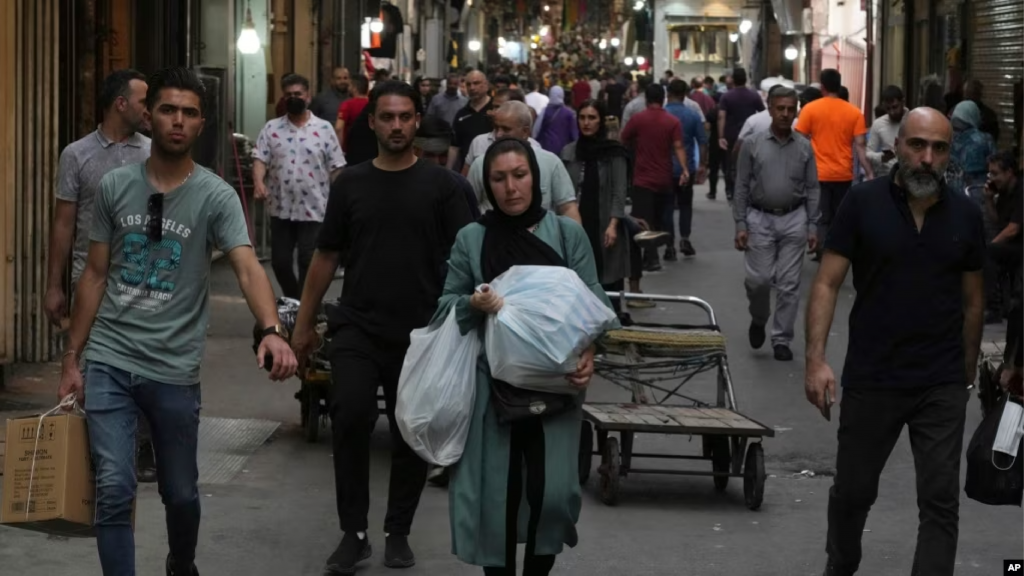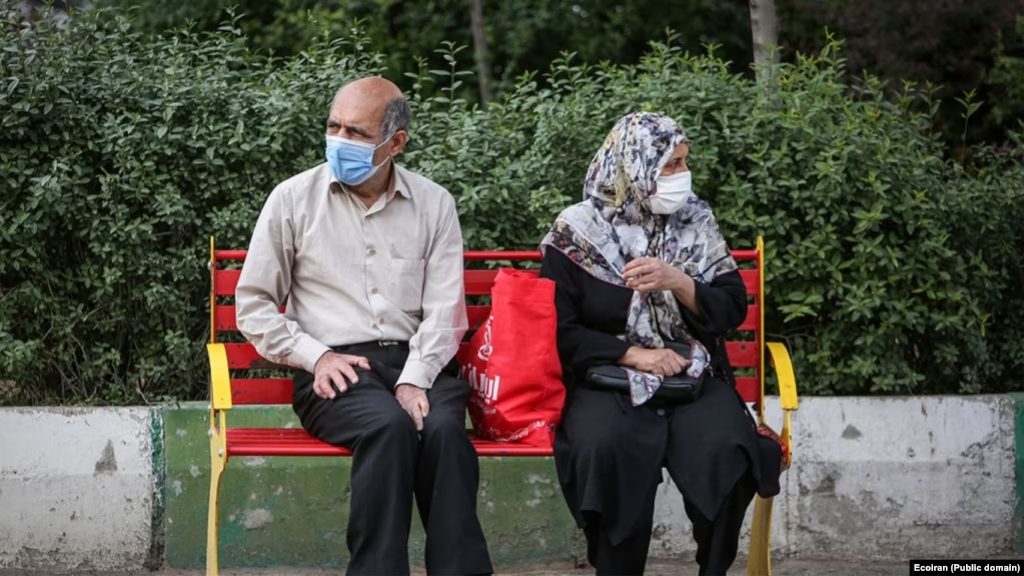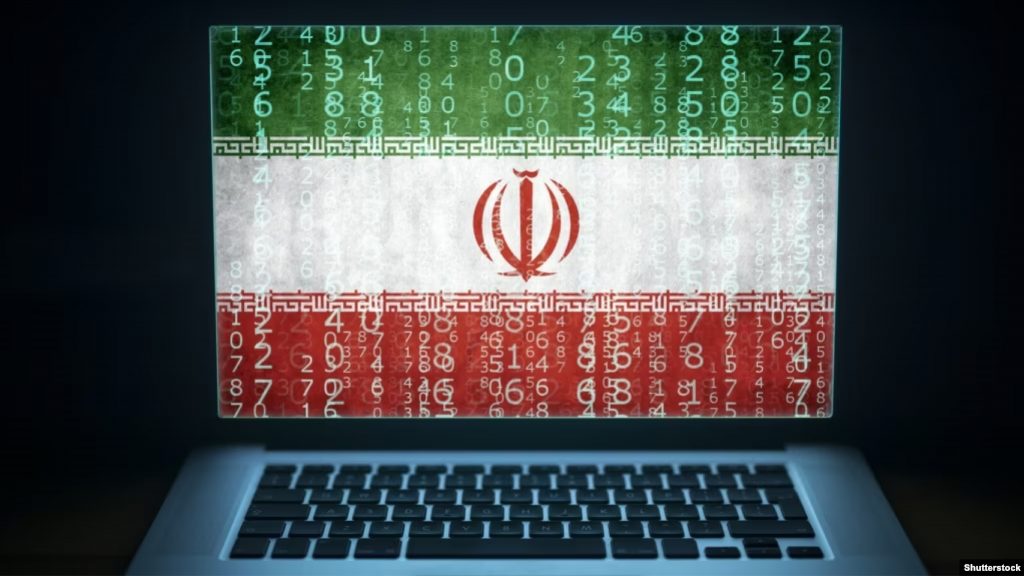
Netanyahu Surrounded by Crises
The editorial of Jahan Sanat reviews all the crises that Israeli Prime Minister Benjamin Netanyahu has been facing before and after the October 7 attack by Hamas.
Before Operation Al-Aqsa Flood (Storm) on October 7, Israel was facing multiple domestic crises. These crises intensified after Netanyahu took office following his controversial judicial reforms and corruption cases.
These issues not only polarized Israel, but we also witnessed demonstrations of hundreds of thousands of people against Netanyahu and it was said that these protests and demonstrations were unprecedented since the formation of Israel was announced in 1948.
When the judicial reform law was ratified, the crisis intensified and was then tied to the events of October 7, as a result of which Netanyahu was considered, both in and out of Israel, as responsible for these crises, particularly when some members of military and intelligence organizations of Israel joined Netanyahu’s opponents and got involved in social and political factionalism.
On the other hand, Operation Al-Aqsa Flood was an unprecedented strike on Israel because the number of Israeli casualties is reportedly more than 1,400 people which is unprecedented even in big wars. Consequently, anxiety and concern due to the lack of security have increased in Israel and we are witnessing the evacuation of many Israeli settlements, particularly along the Lebanese border where people have been relocated to other places.
Now, Netanyahu is blamed for all these issues and accumulated challenges with his popularity dramatically dropping. In fact, polls show that his popularity rating in Israel is just 25%. So naturally he will be removed from office after this conflict and might even be prosecuted.
Moreover, after the conflict comes to an end, the issue of killing civilians in Gaza will become a problem for Israel and Netanyahu. It means that he will face pressures from within the country and will be under pressure from other countries, as the evidence shows that the US administration and several European countries were against Netanyahu and the radical measures of his government.
This is an important issue because when this war comes to an end, Israel will not be the same, nor will the Middle East ever return to its previous conditions. While Israel was after normalizing relations with Arab countries, the massacres perpetrated by Netanyahu and his government will create resentment among Arab and Muslim countries and conservative Arab countries will have to move cautiously with regard to Israel.
So it is only natural that Netanyahu must go and a new person must replace him to pursue Israel’s goals on the regional and global levels.
Gaza, Israel and a Ceasefire
The editorial of Arman Melli argues that since 2005, whenever the Israelis have engaged in wars against Gaza, they have been the ones calling for a ceasefire.
Ceasefires in Gaza since 2005 were related to 10 wars imposed on Gaza by the Zionist regime. In all these cases, it was the Zionist regime that proposed ceasefire despite starting the war itself. So it is likely that the Israelis will propose a ceasefire this time too, given the domestic problems of the Zionist regime, the global pressures, and the inability of this country’s army in achieving its goals.
Of course, in these 10 wars imposed on Gaza, the ceasefire proposals were offered through Egypt, and in all these cases, the Israelis did not reveal their requests for a ceasefire because they were worried that it might make the regime appear weak.
Currently, too, we are witnessing that the Zionist regime is hiding its call for a ceasefire more than ever. This is because it has suffered a great defeat and is now after making progress and a relative victory in this war to cover up its defeat.
On the other hand, the large number of hostages in the possession of Hamas will compel the Israelis to propose a ceasefire in order to stop the domestic protests which are held for freeing the hostages. So what Arab and some Western countries are doing about a ceasefire is basically within a humanitarian context, as is expected from Islamic nations. And perhaps these efforts aim at alleviating the global rage against the Zionists and the West.
But despite the Zionist regime’s emphasis on continuing the war, these conditions are not tolerable for the Zionists. Economic conditions and domestic politics are turbulent in Israel. Meanwhile, the Zionists’ regional and global standing has become so uncertain that one can say that in the past 75 years, the conditions for regime collapse are unprecedented. Now, if anything might cause the collapse of the Zionist regime, hundreds of millions of people will back it.
Diplomatic Nature of the War in Gaza
The editorial of Arman Emrooz argues that the Palestinians, not having gained many concessions through peace talks, have turned to armed resistance even though it has been seriously costly for them.
A faction in Israel has proved that it is not ready to give any concessions to the Palestinians. The formation of two states for Palestinians and Israelis, which is the least concession to be given to the Palestinians, is not acceptable to most Israeli politicians and parties. The experience of the Palestine Liberation Organization (PLO) in pursuing peace in Oslo, in which they gave many concessions to Israel for achieving peace and national authority, was not successful. So, to get the minimum concession, the Palestinians continue their armed resistance alongside the negotiations.
Currently, the PLO is at its weakest and most humiliating position and does not have the capacity for getting any honorable concession for achieving peace. In the West Bank, the PLO has no authority and the security forces are acting under Israel. Given these circumstances, war and conflicts are not the main goal but are preventive measures for obtaining concessions and reaching perpetual peace.
Furthermore, armed conflict is very costly and destructive for the Palestinian people. In fact, resistance has been very costly which has resulted in the massacre of the people.
It must be noted that the solution to the Palestine problem is very complicated. On the one hand, Palestinian diplomatic efforts are ignored by the Israelis, and on the other hand, armed resistance has created an excuse for Israeli crimes, genocide, destruction of infrastructure, the massacre of people and the destruction of Palestinian land.
In the modern world, the issue of Palestine is unique. Israel is allowed to treat Palestinians however it wants to. No nation has ever been so exposed to invasion, genocide, displacement and all kinds of violations. Western powers have unconditionally stood by Israel.
Palestinian resistance is considered as an act of terrorism, with all kinds of weapons, financial facilities and diplomatic support being given to Israel. Any condemnation of Israel by the global community is vetoed by the United States which paves the way for oppressing the Palestinians.
The Benefits for Iran Resulting From Economic Cooperation With Saudi Arabia
The editorial of Tejarat enumerates the different ways in which Tehran’s cooperation with Saudi Arabia might benefit Iran.
Iran’s relations with Saudi Arabia can expand and develop in many directions, one of which is their cooperation in OPEC. Iran-Saudi cooperation can stabilize the price of oil in the market to the advantage of producers.
At the same time, any differences in policies of Iran and Saudi Arabia could pave the way for consumers and buyers of oil to take advantage of the situation. So, Iran-Saudi cooperation as the biggest producers of exported oil within the OPEC framework must be positive and effective.
Many Iranians are willing to go to Mecca and Medina and likewise many Saudi citizens want to visit Iran’s religious cities. So, if both countries can construct a connecting road from the city of Mashhad to Tehran to Ahvaz to southern Iraq and from there to Saudi Arabia, this cooperation can have a positive impact on road transportation and tourism. Then, in addition to air travel, citizens of both countries can visit the other country by land as well while trilateral cooperation between Iran, Saudi Arabia and Iraq will be created.
Moreover, one can mention railroad cooperation. Iran’s rail connection to Iraq has been stopped in recent years and if Saudi Arabia is invited to cooperate in this regard, this project can be expedited with Saudi investment which can boost religious tourism among all three countries.
Given the fact that Saudi Arabia is one of the main investors in the Islamic Development Bank, any interaction with this country can pave the way for the investment of this bank in Iran. Of course, in so far as Iran has not ratified the FATF bills, this bank will probably face problems in transacting with Iran and will not engage in serious cooperation.
Iran can establish positive cooperation in the field of energy because Saudi Arabia has a long history of energy investments in different countries. So, Tehran can develop bilateral cooperation in the oil and gas industries with Riyadh which can benefit both countries.
The more these two countries can expand their economic cooperation, the more their political measures and strategies can be positively impacted.

Parliament Approves “Surveillance of People’s Lifestyles,” Invading Their Privacy

Iranian Parliament members have missioned the Ministry of Culture and Islamic Guidance to create an online system for the “continual monitoring, surveillance and evaluation of popular culture and people’s lifestyles.”
During the review of the details of the Seventh National Development Plan bill, MPs approved paragraph 75 which is dedicated to the “surveillance of people’s lifestyles” with 162 voting in favor, 10 against and 10 abstaining out of 220 votes.
Some MPs, however, also warned that such a measure would go beyond “peeping into individuals’ privacy” and could lead to the “surveillance of all levels of people’s private lives.”
According to Tejarat News, the 75th paragraph obligates all domestic platforms used by people to constantly report the slightest activities of each and every user, including all their in and out-of-town commutes, their purchases and sales and even the food or products they order from grocery stores. The data necessary for this system should be provided by the Statistical Center of Iran.
MP Gholam Reza Nouri Ghezeljeh warned that if this system aims at gathering data for the country’s future, people’s collective data should be checked, not their moment-by-moment activities. In reply, Parliament Speaker Mohammad Bagher Ghalibaf said “of course, if it is decided to check an individual’s activities, a judge’s order will be necessary.”
Ghalibaf, however, did not elaborate on how this would be done or provide any legal guarantee.
Another parliamentarian, Moiedin Saeedi, expressed his concerns in this regard, saying “the more we interfere in people’s lives, the more negative reactions we’ll face.”
Pointing to the futility of such measures, Saeedi remarked that we included a paragraph in this year’s budget bill to provide each mosque which conducts mass prayers twice with financial incentives, “Do such methods cause people to say their prayers?” He then added that unfortunately 75% of the country’s mosques are currently closed.
Moreover, MP Jalal Rashidi Kouchi had previously lambasted this new article in Iran’s Seventh National Development Plan bill, noting that this is no longer encroaching on individuals’ privacy; it seems that “some intend to surveil all parts of people’s private lives.”
Graduation Ceremony Without Mandatory Hijab; Sharif University President Removed

As the fallout continues over the presence of unveiled female students at the graduation ceremony of Pardis International University, a branch of Sharif University on Kish Island, it has been reported that the president of Sharif University has been removed from his position.
According to Mehr News Agency, Minister of Science, Research and Technology Mohammadali Zolfigol has removed Rasool Jalili from this position introducing Abbas Mousavi as this university’s acting director.
Jalili was removed from this position, in 2021 Iranian Supreme Leader Ali Khamenei appointed him as a member of the Supreme Council of Cyberspace, and he has been described as one of main actors in “digital oppression” in Iran which is why the United States has sanctioned him.
The graduation ceremony of 81 students at Pardis International University on Kish Island was recently held, with video footage showing that most female students were wearing graduation outfits and hats but not the obligatory hijab.
The Supreme Leader Representation in Universities confirmed that this organization’s President Mostafa Rostami was present at the ceremony but left the hall, along with Kish’s Friday prayer leader, moments before the girls appeared on the stage without the obligatory hijab.
“Sharif Today” Telegram channel commented on the reaction of the Iranian authorities to the presence of unveiled female students in Pardis International University, urging that there are more important issues in Iran that have never been followed up on and confronted by the Iranian authorities so quickly and with so much seriousness.
Since the nationwide protests against the death of Mahsa Amini in morality police custody, many students, particularly female students, have openly expressed their opposition to mandatory hijab.
Criticism Against Increase in Retirement Age in Iran

Iranian lawmakers have voted for a gradual increase in the retirement age in the Seventh Development Plan, a move which aims at “decreasing the imbalance” in pension funds.
Legislative support for increasing the retirement age, nonetheless, has provoked widespread criticism.
Experts and economists have underscored that increasing the age of retirement in the country will not only not solve the problem with pension funds, but will add to the problems.
Earlier, Khabar online website had reported that the main reason for the government’s proposal to change the way of calculating the retirement age is the dire situation of pension funds, highlighting that the government will financially benefit from this.
For a decade, Iranian governments have extensively manipulated pension funds — including allocating shares, entrusting factories and even endowing lands to these funds — to compensate for its outstanding debts to them. Official reports, however, indicate that 17 out of 18 pension funds in Iran are either bankrupt or on the verge of bankruptcy.
In past years, many government officials warned about the bankruptcy of pension funds with many experts and critics blaming government policy as the main cause of this crisis.
Earlier this year, an official warned in an interview that “this might go so far that we might have to sell Kish, Qeshm and Khuzestan to be able to pay pensioners’ salaries.”
Critics blame “governmental corruption and plunder” as the main causes of the bankruptcy of these funds, urging that the public must not pay the price for it.
Some experts point to corruption and mismanagement, asking “when the government, with its inflationary policies, has squandered people’s savings, why should defrauded people work more years to pay for officials’ inefficiency?”
Meanwhile, many say that when the unemployment rate is increasing in the country day by day, what is the use of increasing the retirement age?
Full Internet Outage for Several Hours

According to social network users’ reports, on Saturday morning, November 19, there was a severe disruption and full outage of the internet in many regions across Iran.
Zoomit website which covers technology news wrote in this regard on Saturday that Iranians were having problems in accessing the internet which was either seriously disrupted or completely inaccessible. In the meantime, access was only possible via the domestic network.
ISNA too wrote that the country’s internet had suffered disruption and users could not access the internet for several hours on Saturday.
This news agency gave no explanation as to the cause of the internet outage in the country.
Furthermore, NetBlocks which monitors internet limitations all over the world pointed to the brief disruption to internet connectivity in Iran, with national connectivity falling to 57% of ordinary levels before recovering.
Later, ISNA and Tasnim news agencies reported that the temporary disruption was fixed.
ISNA quoted the Telecommunications Infrastructure Company saying that the outage in the internet network was due to the disruption in Tehran Province’s transmission network and is now resolved.
The internet outage in Iran faced severe reactions and criticisms from social network users.
Many users pointed to the fact that this outage coincided with the anniversary of the 2019 protests and the widespread shut down of the internet by the government back then.
The nationwide protests of November 2019 were at first in reaction to the sudden increase in gas prices which were brutally suppressed by the Iranian regime resulting in hundreds of deaths.
During the protests, access to the global internet dropped to about 5% for at least five days.
Health Ministry: Half of People Over 30 Not Physically Active Enough

According to the Office of the Management of Non-infectious Disease in the Iranian Health Ministry, 50% of the population over 30 years of age are not physically active enough.
This lack of mobility, an official stated, results in high blood pressure and diabetes in individuals.
The Office of the Management of Non-infectious Disease had previously announced that 7 million people, equal to 14% of the population over 30, suffer from diabetes.
An official from Tehran Municipality also highlighted that physical activity per capita in Iran is 13 minutes on average.
Moreover, the head of the Public Sports Federation stated that about 80% of Iranian society is sedentary, clarifying that this is more widespread among women.
These statistics are released while there are no proper spaces for walking and daily exercises and there is gender segregation in gyms which has made it very challenging for women to exercise.
Under Ebrahim Raisi’s government and with the increase in restrictions on women to comply with mandatory hijab, restrictions on sports for women have increased. Recently, women were banned from taking part in bodybuilding activities.
Although there have always been problems in Iran related to women’s presence in different fields of sports, including sportswomen’s attire or women’s presence in stadiums, these issues have attracted the attention of a growing number of human rights advocates and global sports organizations in recent years.
Recently, a group of Iranian expatriates asked the International Olympic Committee to ban Iran from the 2024 Paris Olympic Games for the government’s discrimination against women in sports.
Iranian Nobel Peace laureate Shirin Ebadi is one of the figures calling for banning Iran from the Paris Olympic games.
Translated material from Persian media outlets does not reflect Rasanah’s point of view
